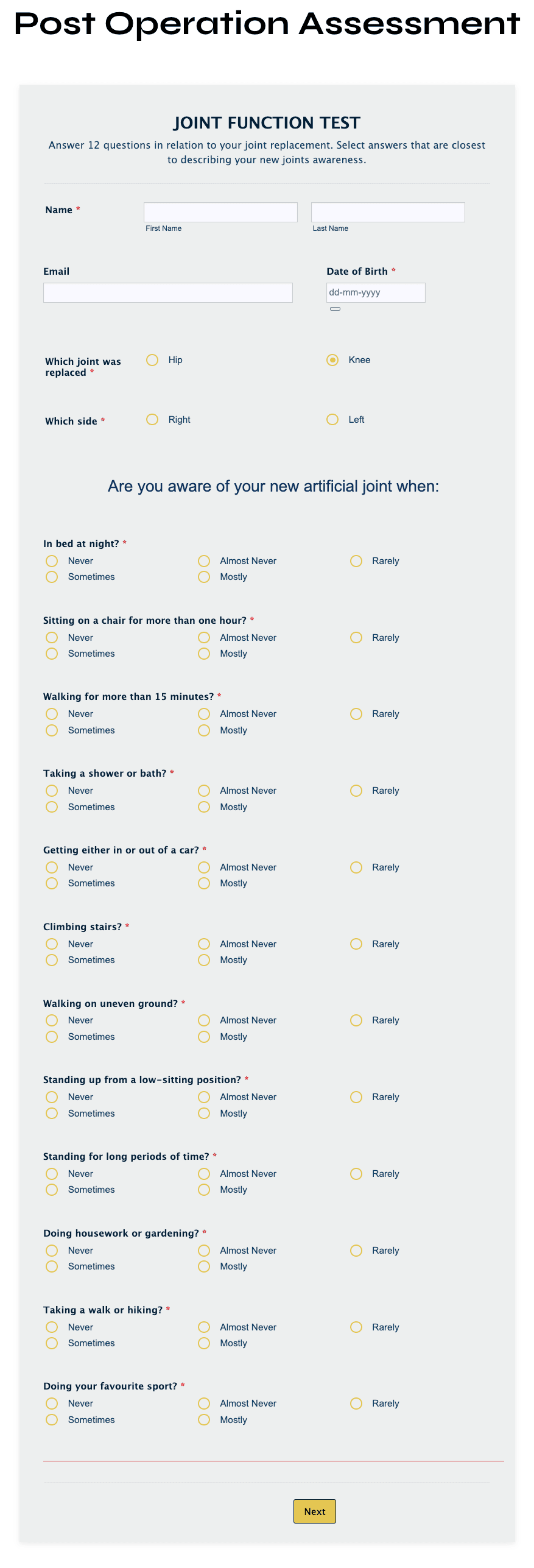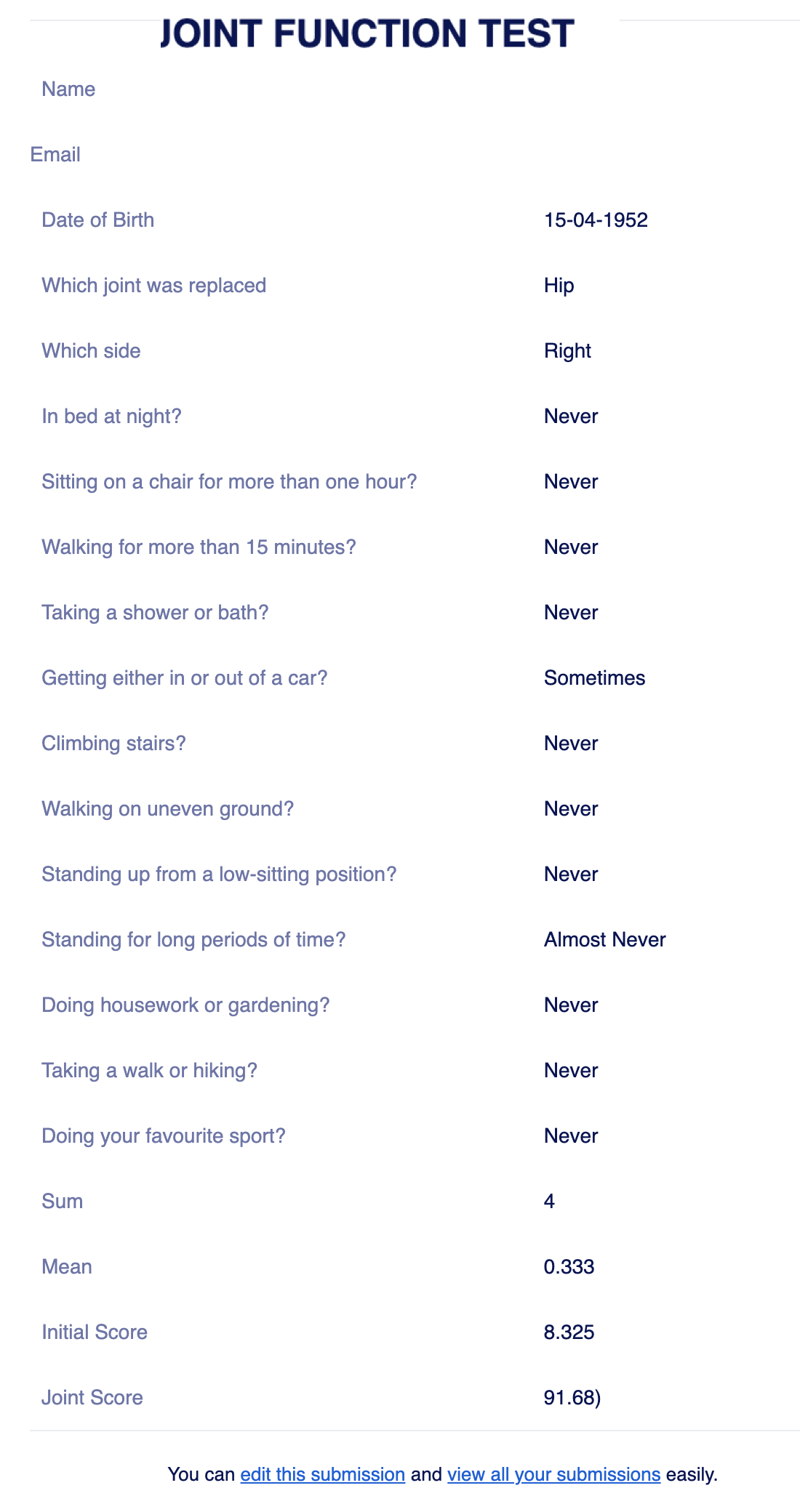Post Op Assessment Forms & Automation
What are Online Post Operative Assessments?
Post-Operative Assessment forms are a key step in post-surgical care.
The main goals of a post-op assessment forms include:
- Monitoring Recovery: Checking for signs of proper wound healing, infection, or complications, etc
- Checking for Complications: Identifying issues like infections, deep vein thrombosis, or poor wound healing, etc
- Assessing Mobility & Function: Evaluating post op success factors like movement restrictions, rehabilitation etc.
Other assessments can include: Pain Management:, Assessing Vital Signs, Reviewing Medication & Instructions, Confirming Follow-Up Care
Benefits of Online Assessments
Online post-operative assessments provide a convenient, efficient, and effective way to monitor patients' recovery after surgery.
1. Convenience for Patients
- Patients can complete the assessment from home, reducing the need for travel, which can be challenging after surgery.
- Forms can be accessed anytime, allowing patients to provide updates anytime
- Reduces disruption to daily routines, making post-op care more manageable.
2. Early Detection of Complications
- Structured questions help identify any post-operative complications.
3. Time Efficiency for Healthcare Providers
- Automates data collection, allow for easy reviews vs one on one calls or meetings.
- Reduces administration, allowing more in-person consultations.
4. Consistent & Standardised Data Collection
- Ensures all necessary post-op details are captured in a uniform manner.
- Allows for better tracking of patient recovery trends over time.
5. Improved Patient Engagement & Compliance
- Encourages patients to participate in their recovery by reporting their condition.
- Offer feedback with a patient score
6. Cost Savings
- Reduces some follow-up visits, saving both patients and healthcare providers time.
- Minimises clinic costs by reducing manual administrative work.
- Reduces paperwork, making documentation more seamless and error-free.
7. Enhanced Accessibility
- Beneficial for patients in remote or rural areas.
- Ensures patients feel supported and reassured during their recovery journey.
- Forms can be used to update patient records, ensuring accurate information.
8. Customizable & Scalable
- Forms can be tailored to different surgical procedures and specific assessments.
- Helps providers track patient history and recovery progress more efficiently.
9. Surgical Outcome & Research
- Conduct effective data collection and post operative research
PATIENT RESULTS SCREEN

ONLINE PATIENT FORM

DOCTOR RESULTS EMAIL

Your Healthcare Website as Easy as...
01
Claim a FREE Expert Consultation
02
Conduct a Preliminary Sitemap & Plan
03
We Design, Build & Support your Website
Quick Links
© 2025
All Rights Reserved
